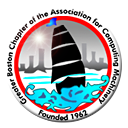Software Patents: A Proposal for Reform in Theory, Policy, and Practice
Intellectual property law has proven exceedingly difficult to apply to software, despite four decades of effort to make software fit into one or more existing intellectual property paradigms. I argue that such attempts have failed due to a failure to recognize the unique qualities of software that are relevant to patent law. I claim that software differs from other electromechanical technologies because of the unique process by which software programs are invented. In particular, software developers create novel executable software programs, which are components of a computer, by conceiving of and specifying such programs solely in terms of their logical structure. As a result, computer programmers need not engage in physical structural design, which historically has been necessary to invent electromechanical devices. This feature of software development violates the assumptions of patent law, which generally requires that electromechanical inventions be conceived, described, and claimed in terms of their physical structure. I propose that the legal rules governing patentability and patent claim scope should be modified to allow software to be conceived, described, and claimed in terms of its logical structure. Such changes to the law would produce a better fit between patent law and the nature of software.
This is a joint meeting with the Boston chapters of the IEEE Society on Social Implications of Technology and the IEEE Computer Society.
Robert Plotkin, Esq. is an intellectual property attorney with a solo practice based in Concord, Massachusetts. Attorney Plotkin represents clients ranging from individual inventors to Fortune 50 companies in patent, trademark, and copyright matters, with an emphasis on patent application preparation and prosecution in the fields of computer hardware and software. He is also a Lecturer at the Boston University School of Law, where he teaches a seminar entitled “Software and the Law.†He has written and spoken on topics including software patents, First Amendment protection for computer software, ethical implications of software source code publication, trademark and domain name disputes, patent licensing, electronic court filing, and electronic privacy in the workplace. He is licensed to practice law in the Commonwealth of Massachusetts and the State of New York, and is registered to practice before the United States Patent and Trademark Office. Attorney Plotkin received his bachelor's degree in Computer Science and Engineering from the Massachusetts Institute of Technology and his law degree from the Boston University School of Law.
